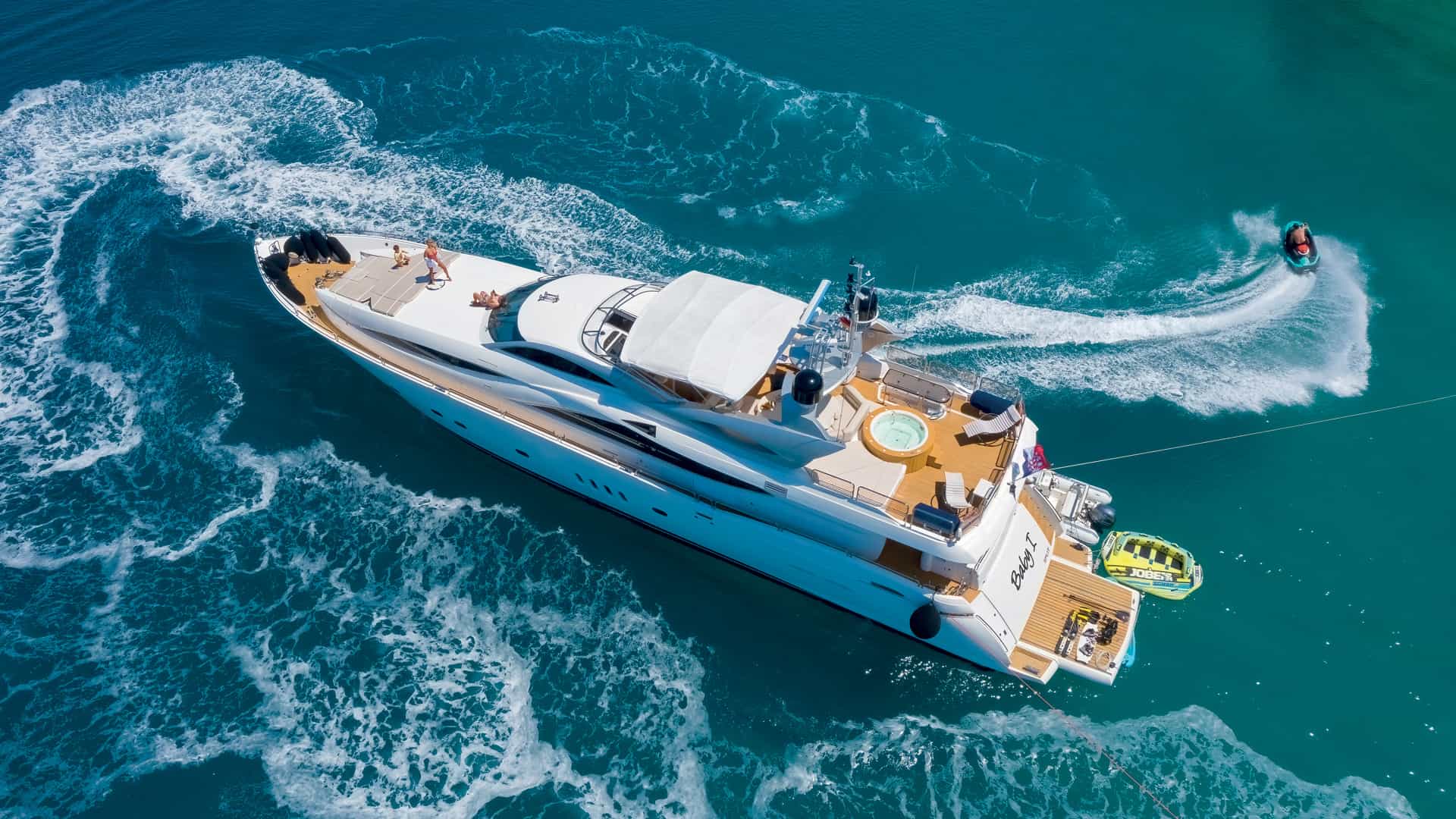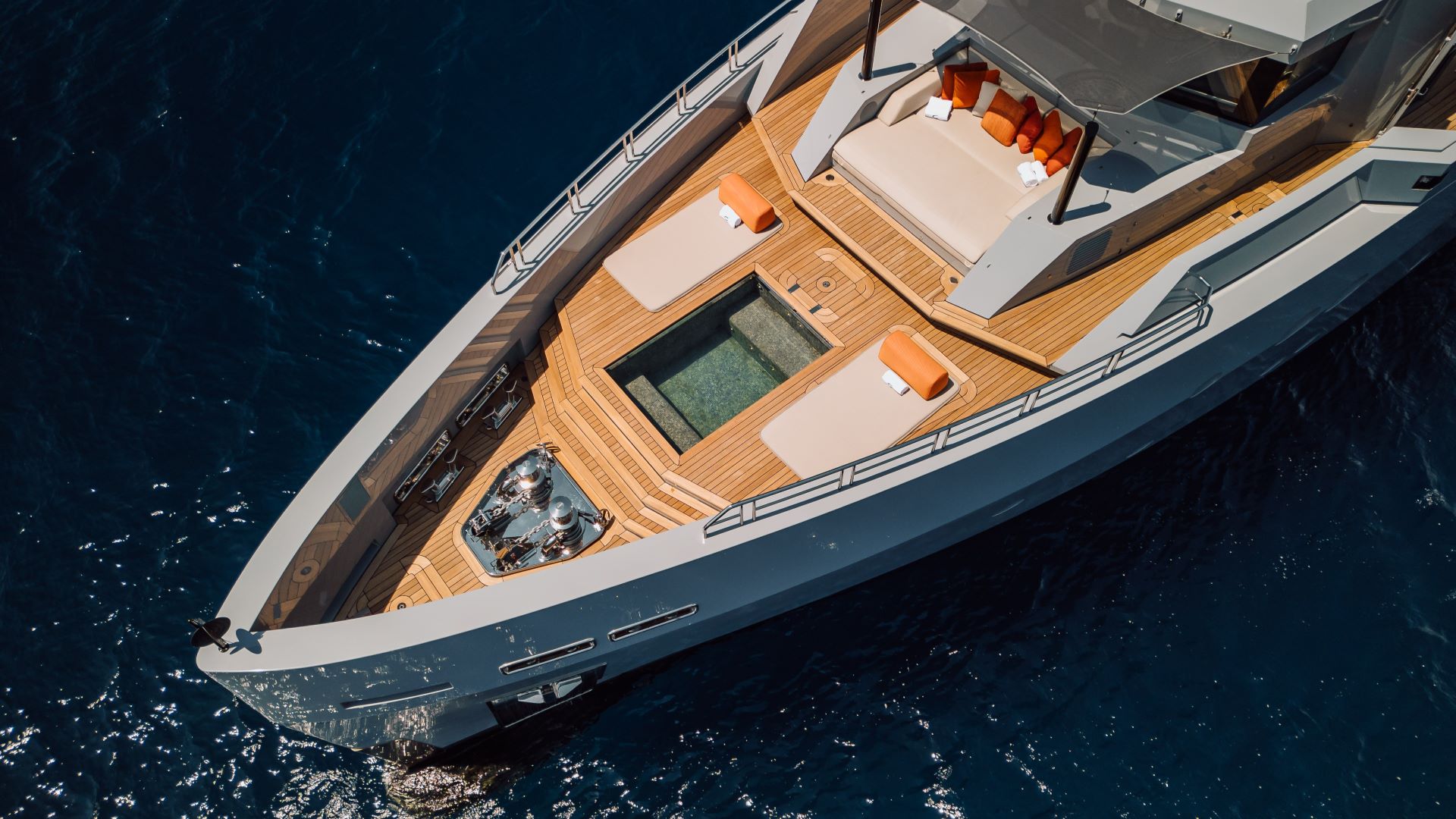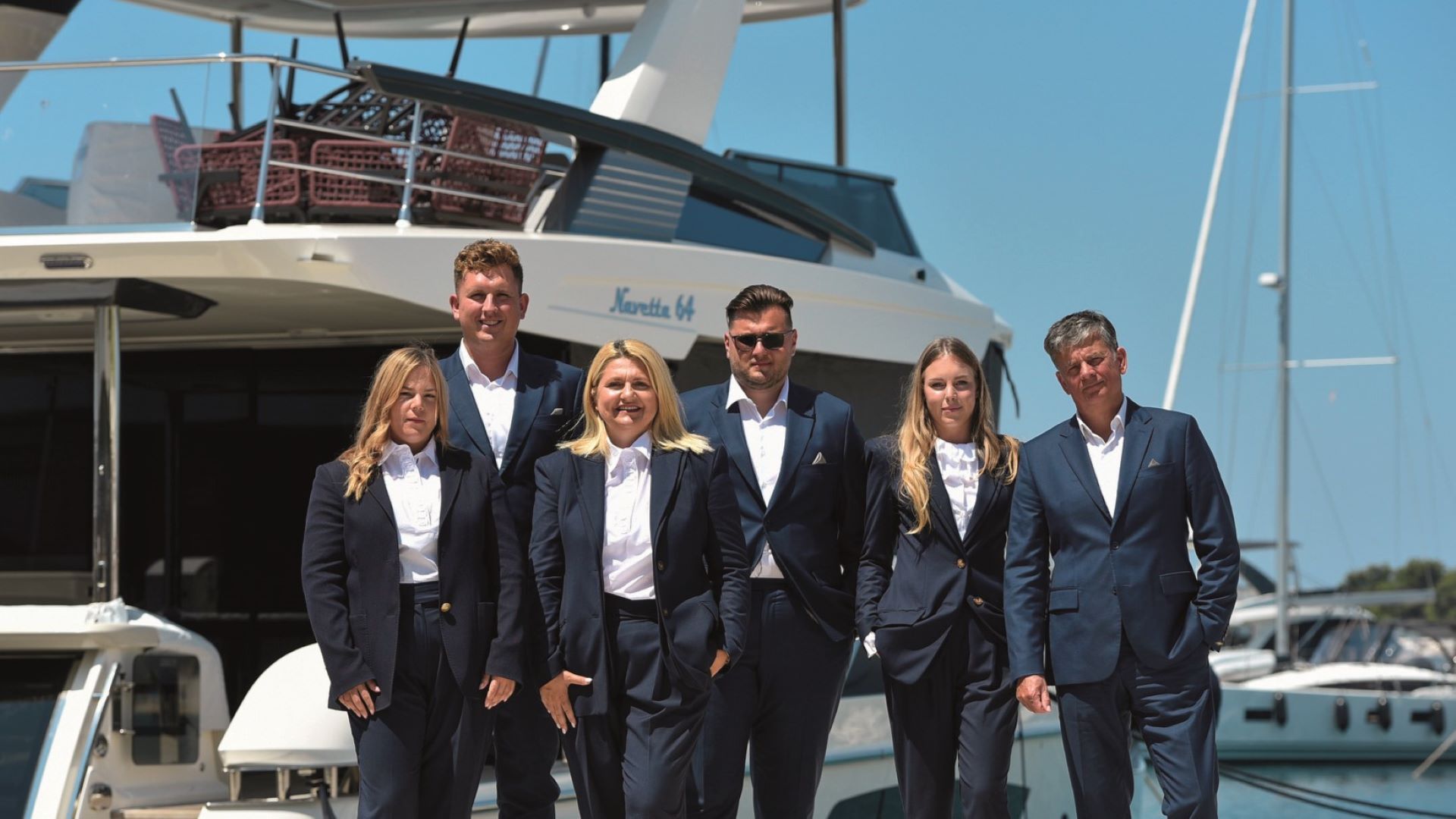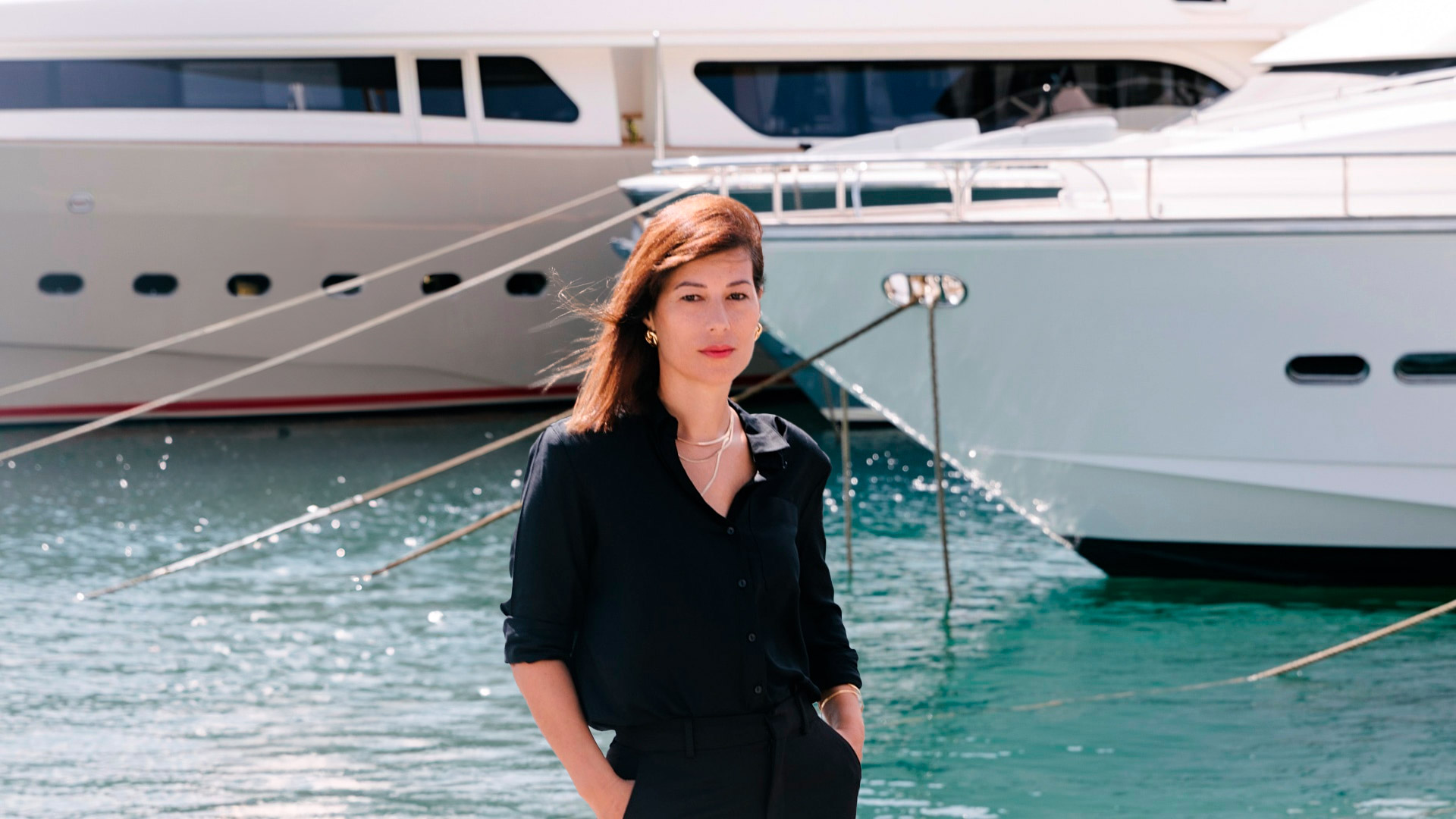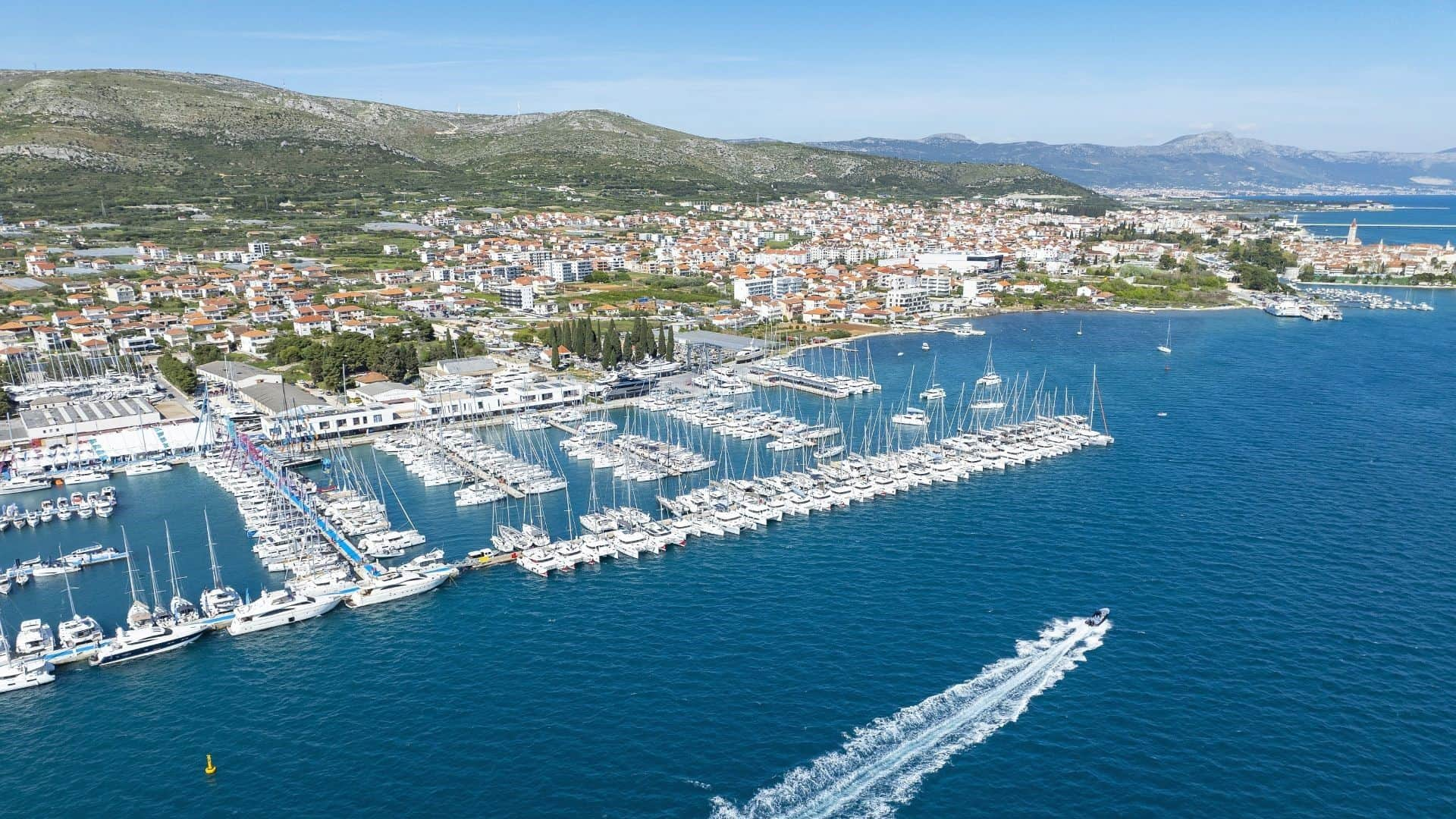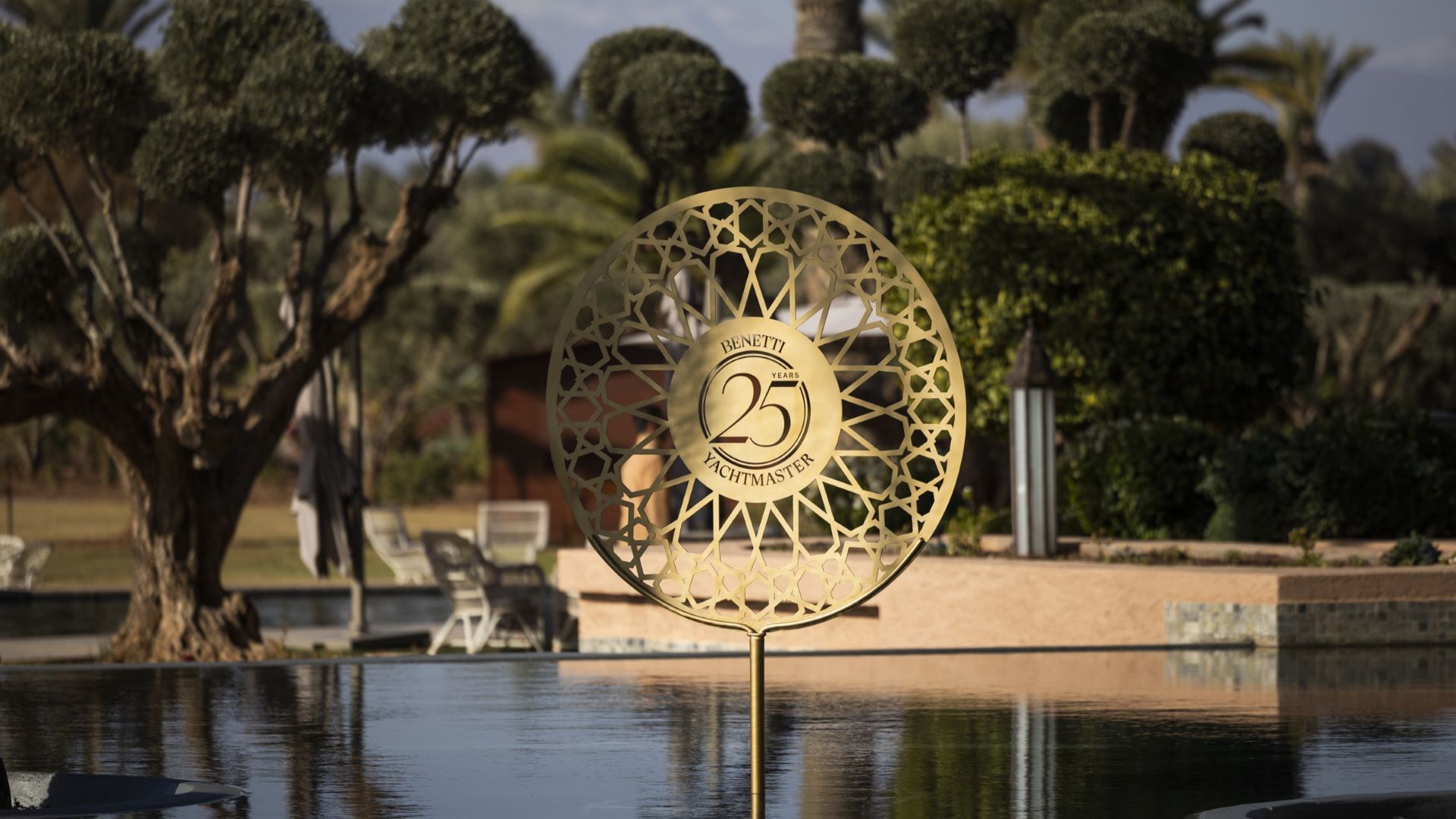Nena Kriška walked the deck of yachts big and small – and biggest. Born and raised in Split, she has built an impressive career, and says she has many beautiful memories – and many useful advice for beginners in the industry
Former Croatian member of the crew of several of the world’s largest yachts is taking a break from her long career in her hometown Split, where we talked to her about her demanding job, about what she learned working on yachts, and about excelling in the industry adhering to highest standards and catering to almost exclusively extremely wealthy people.
How would you describe your career in a few words?
From 2008 to 2018 I was sailing as chief stewardess, first on two Benetti yachts 44 meters in length, both in charter of which Told U So was owned by Molori Design, as well as on a 55-meter Heesen, an 86-meter Oceanco, and a 156-meter Lurssen, as head of service. I worked in teams ranging from 10 to more than 100 members. My job took me to Monaco, Antibes, Barcelona, Miami, shipyards in Italy and the Netherlands; I have spent winters in various seas including the Caribbean, the Indian Ocean, Thailand, Singapore and the Maldives…
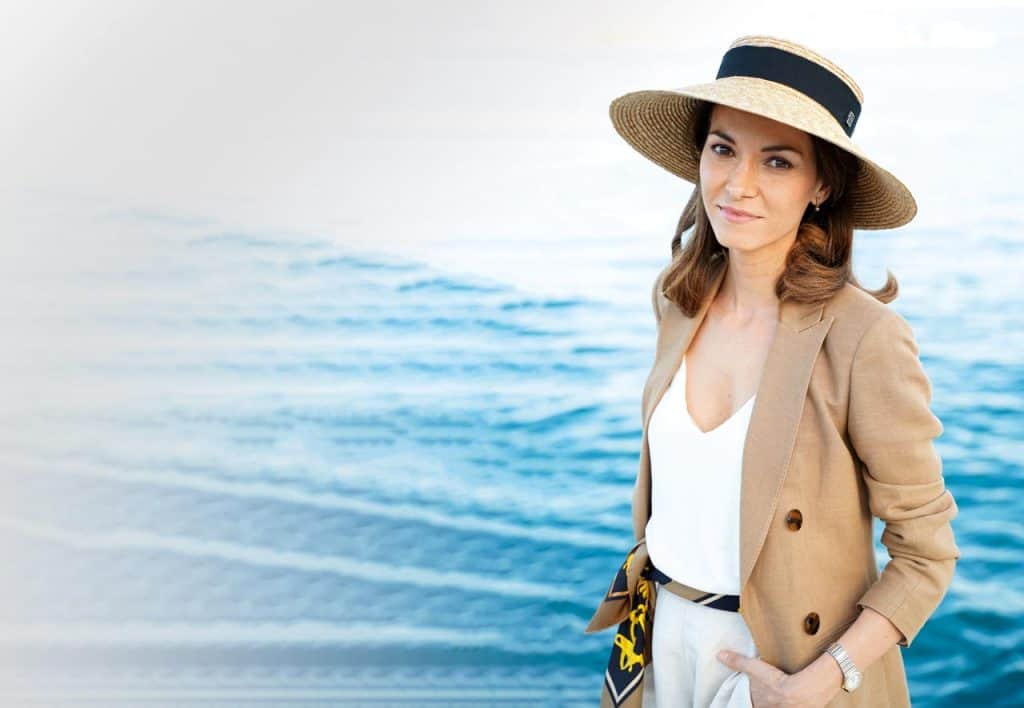
Maybe most impressive of these yachts is Dilbar?
Before that, when I worked on smaller yachts, I always wondered what it would be like to work on a giant, and then I got a chance to work on Dilbar, thank to Mr. Peter Vogel from Luxury Hospitality Academy, who recommended me for the position of head of service. On Dilbar, I worked with a large stewardess team working on rotation of housekeeping and service. The service team usually included at least ten stewardesses. I am very proud of my service and my position on Dilbar as the yacht is really spectacular.
Did you get specific training for your job?
Although I had had previous experience in the service industry, as I used to worked in a hotel, I got trained on the job. My mentor was my then chief stew, and for a while I rotated between housekeeping, laundry and service. That is the usual path for a junior stewardess, that teaches you every aspect of the job and gives you an estimate of how long it takes to complete every task. Later, as senior stewardess, you are responsible for training others, which makes that path useful and necessary. Other than that kind of training, there is specific luxury service training, usually organized before the yachting season: experts are brought in to polish crew skills, optimize efficiency, pump up the energy and team spirit. Stewardesses are expected to be versatile – for example, we were trained to perform as baristas, cocktail masters and florists, and learned about wines based on specific yacht wine lists. As senior stewardess, I attended classes in leadership and management too.
In the very beginning, try to learn as much as you can from others, and be patient. Social skills are of utmost importance, as is a can-do attitude. Also important is maintaining a professional relationship with colleagues, and trusting the decisions of your superiors, as they usually know more than you, and ultimately bear all the responsibility, revealed Nena Kriška
What are the differences between working on a yacht in charter, and on a privately owned yacht?
I found it more interesting to work on yachts in charter: it was exciting to see who will get out of that limo and climb aboard. Sometimes we were sorry to see guests leave. Charter is more dynamic, it requires excellent preparation, adaptability and constant communication among the staff. Guests usually want to use the yacht to the max, to see what’s there to do on it, while private yacht owners are all about their routine, which leaves the crew to figure out how to always be one step ahead of their wishes.
There are funny situations as well, once we had group of divers that we barely saw on board… On yachts in charter it is often the crew that dictates, so to speak, the daily rhythm, while private owners are always the only boss. There are very few surprises on private yachts. There are extremes, though: some owners use their yacht rarely or never, while some live on them. Each boat is different, and we like to say that there is a boat for everyone…
What is expected from potential future stewardesses?
First and foremost, initiative. I want to help young colleges and inspire them to approach yachting industry but girls must take it upon themselves to master STCW courses, Security Awareness and Food handling courses even before approaching yachts. Then there’s the CV, sending out your papers to crewing agencies, and finally going there – to Antibes or Palma de Mallorca – for interviews and the dock walk. Most yacht crews use English to communicate among themselves and with guests, which means your English must be excellent. The very first interview with an agency will confirm your language skills.
Most basic expectations are being ready to work long hours, learn from seniors, respecting hierarchy, and always doing you best. Stewardesses must be aware of their chief stew’s expectations, and understand that every task on board is equally important, including washing and cleaning. That’s all part of the excellent service guests expect. When I was in charge of hiring new staff members, I looked for eagerness to work and positive attitude, persons who will fit in with the already present staff, as well as people who will bring a new skill to the team. I would advise potential stewardesses to find or develop their passion for yachting, as their life will be much easier if they find motivation within themselves.
Also, I would tell them to invest into interesting skills or upgrade their existing hobby, as they are always in demand – masseuses, hairdressers, yoga instructors, photographers, divers etc. are always interesting. In the very beginning, try to learn as much as you can from others, and be patient. Social skills are of utmost importance, as is a can-do attitude. Also important is maintaining a professional relationship with colleagues, and trusting the decisions of your superiors, as they usually know more than you, and ultimately bear all the responsibility. As member of staff always make sure you respect members of other departments – I believe if members of various departments could switch jobs for one day, conflicts would be reduced to zero.
Chief stews must be flexible, have impeccable timing and great organizational skills, as their responsibilities involve not only taking care of the interior living space aboard, highest standard service, hiring and training crew, but also logistics (buying of everything but food, for that is the responsibility of the chef), some accounting, and concierge services. It is often the chief stew to communicate with guests and the boss, which requires high degree of responsibility and dependability. Finally, it would be nice to be an ecologically aware as a person in general, as it is the chief stew’s decision whether plastic will be in use on yacht and whether cleaning supplies will be green.

What are the good, and what are the bad sides of the job?
Yachting is an excellent industry for young people full of energy, willing to work and enjoying travel. It is an attractive and fast-paced job; the days fly by because you’re busy, you’re preparing for the next charter still working on the previous one, and before you know it, a decade has passed. One of the good sides is money: you don’t have to spend your paycheck on food, rent or bills, so you save it. There are also charter tips, or some kind of bonus if you work on private yachts. 13th salary, and the rotation is definitely the most desired thing.
The job also gives you an opportunity to work with people from all over the world, and Captains sometimes mix nationalities aboard as much as they can. Then there are interesting guests and situations. As for the bad sides, well. Staff and crew are aboard even on rainy days, and winters on the dock can go on forever. Your summers are spent working – you’re surrounded by sea, with no time for a swim. You get used to missing important moments in the lives of your friends and family.
My personal pet hate was sharing a cabin in my thirties, but I must say I’ve had some amazing roommates that became my friends for life. Unlike with normal jobs, you can’t punch out and leave at five o’clock; you spend all of your day with colleagues. Sometimes no yacht is big enough and all you want is some peace and privacy. But then comes a lovely morning, you sit down for a cup of coffee and watch the perfect sunrise, and that recharges your batteries. Working on yachts is not glamorous, no matter how much time you spend in the most beautiful places in the world. At least you can always get Instagram photos out of it, right? (Not that I have an account.)
Who did you work closest with among the staff? What did you find to be the easiest, or the hardest part of your job?
Chief stew absolutely must find a common language with the chef, as it’s the chef she will most often talk to, job-wise. We are the ones that present their creations to the guests, which means we have to know everything about the food. That part is easier if you’re a foodie like me. Then there’s the Captain, with whom you have to arrange supplies and discuss guests’ plans for the day. And finally and the most importantly, you have to be able to communicate properly with your team, other stewardesses.
You have to know you are all on the same page when it comes to putting guests above everything else. There were many times during my career that a large family gathered on the yacht after a while, or that a guest had a birthday, and it was our pleasure to make those special moments even more beautiful. What made me personally happy was always visiting street markets; I love open markets. The difficult part of the job are always people, including employers who fail on their promises and make you function with an unexpectedly small team, for example.
You’ve mentioned some interesting situations?
We had an owner’s senior dog fall into the sea from the plank, safely pulled aboard and dried with hair dryer, all within two minutes. Guests don’t need to know everything, do they? Then there was the time a colleague asked me if I could swim, and I said I could, but not for 15 miles. There was a fire in the engine room that night, while guests were on board. They ended up asking for champagne and snacks, gratefully hugging the Captain and saying they’ll have interesting stories to tell when they return to Moscow.
There was a night when a famous tenor sang for mere 20 guests. There were many famous faces on board that night – it was surreal. I was also on the yacht chartered by the late Eagles singer Glenn Frey and his family. One morning I heard somebody playing Chan Chan on an acoustic guitar. I thought that would be Mr. Frey, but it turned out to be his then seven years-old son.
What were the most beautiful places you visited on the job?
My favorite places were always the ones with great food. I was also always glad to see a coast free of unregulated development, where you could feel that charm of small places, like Greece, Italy, Spain and France. I’m in love with Italy (as well), and when it comes to beaches my choices would be Sardinian and Basque coast. As for exotic destinations, my favorite adventures were beach volleyball in the Maldives and feeding the swimming piggies in the Bahamas. But I have to say that our Croatia has some stunning destinations as well.
Where do you see yourself in the yachting industry in the future?
People with vast knowledge in yachting can always apply their experience in any segment that needs VIP services, be it villas, hotel management or something alike. As I was a chief stew on two new builds, a 44-meter and a 55-meter, and I was in charge of supplies of everything, for the crew and the guests alike, I could also be an asset for a shipyard. Speaking of new builds, when I was a kid, my grandpa, who worked in the Split shipyard, took me to see a launch. Who knows, maybe my yachting story started that day.
Text Darko Šupuk
Photos Mario Jelavić
